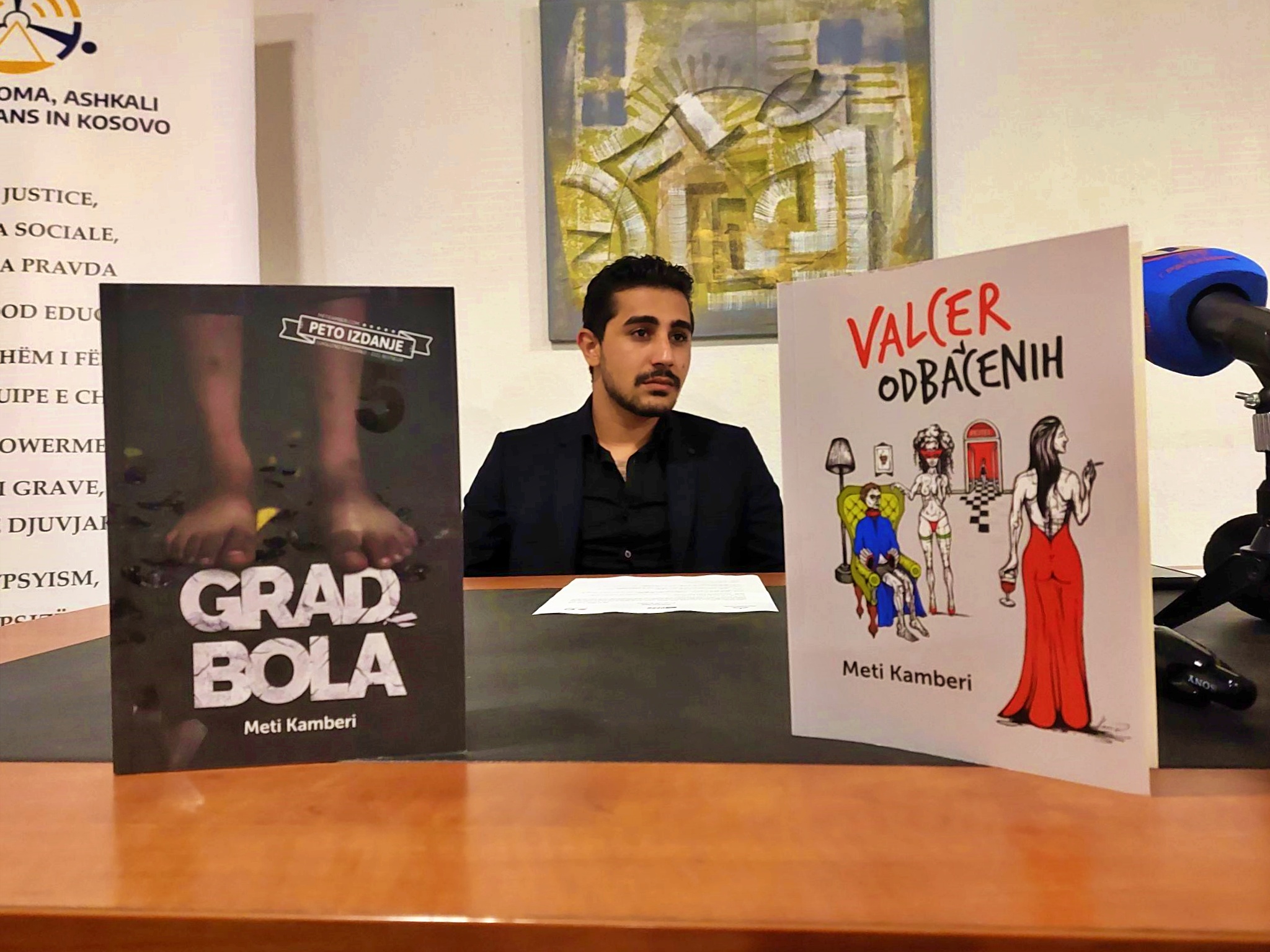Category: Blog Tags: #EDUCATION #CULTURE #HUMAN RIGHTS #LANGUAGE
Meti Kamberi is the author of three novels, two of which are autobiographies - "City of Pain", "City of Sin" and "Waltz". City of pain was published in 10 editions and translated into German, soon the book will be published in Switzerland. Based on this novel, he is working on a screenplay for a feature film. "There is a hidden strength in each of us, one must believe in what one does. He should not stop dreaming. I wanted to show that Roma people can also read, write and work on themselves. I think that I contributed something to Roma culture by doing so. I am glad that I reached that high branch to do it." - he said.
Meti Kamberi comes from a Roma family, he was born in Nis. He stayed in an orphanage, in three foster families, at the age of 12 he learned to read and write. The turning point in his life was the writing of a book. He wrote to overcome his inner fears and anxieties.
‘’No one better than Meti can understand what a smile, a little love, attention and warmth means to an abandoned child, what it is like to get out of the abyss and to write on an empty stomach in order to influence the consciousness of readers, regardless of age, social class or skin color."
“But i think everyone can change their life, if they have the ambition to work on themselves, and above all, they have to believe in themselves and someone has to believe in them, because a person is not created to be alone and live alone," Kamberi said at the promotion of his books in Gracanica.
Meti’s story in front of the audience revealed his writing process, but also that side of the story that is not fully accessible to the reader on the pages of the book - what it is like to live on the edge of poverty, the margins of society and what it is like to write in such conditions.
“The most basic human need is to be nourished, this is also a problem for the Roma people. Roma people mostly don’t go to schools because they actually live on the edge of poverty, i was also very poor and lived on the edge of poverty and my priority was not school, but something else. When I managed to have regular meals and to have friends, then I started going to school.” says Kamberi.
He points out the shortcomings of the system, criticizes the education system, but also the social protection system.
“Children don’t belong in orphanages or in foster families, children belong with their parents. I don't have that feeling, I don't know what it's like to have parents, I don't know my father, i have mother who doesn't even know what I wrote about, she can't read, because she's illiterate, she's stuck in her dreary life and lives very badly and I feel bad about that."
The system doesn’t allow you to reach a high ladder, in my opinion, it is poorly organized, so I tried to educate myself and work on myself," he adds.
"That book (City of Pain) changed my life. In the orphanage, the children are very bad. The environment greatly influences how you develop. I tried not to stain my soul and my character and I always had the ambition to do something. I wanted to succeed in something, to be noticed" he explains.
After writing the first book, he invested everything in getting it published. After the publication and first article in the media, the book "City of Pain" sold thousands of copies.
“For me, the biggest success was when a woman said to me - now when I walk down the street and see someone begging, I look at that person differently. For me that’s the greatest success and a great motivation, I think that what I did was good, because in some way I showed the Roma culture and brought the readers closer to what the Roma people face, to see how they live on the edge of poverty, to see that there are also good people, that not everything is black or white. Life is a bit gray," Meti explains.
The second book "City of Sin" also partly concerns his life story - he moved from Niš to Belgrade.
"City of Sin" is a novel about what it is like when you have everything, how happiness is short-lived, the author explains: “Happiness is like passion, because passion passes quickly. I think we should strive for satisfaction, satisfaction tends to last.”
In addition to speaking openly about himself and his life, Meti Kamberi also spoke about discrimination and relations in the Roma community itself.
“Discrimination - that's how the world works, but it must not demotivate you. Be strong, work on yourself, contribute to society, because that's the bottom line, we should try to be good people and do what we love. Nothing in the world is equal, but we have equal needs to think, feel, love each other and to develop, that's what unites us…” - he told the children from the Roma community.
“Roma people are invisible to people in suits, they are only visible when voting or something like that, and I feel very bad for that."
I have met many Roma people who are educated, but they look down on those who have no knowledge. That's very bad, I think they have to be equal, and in order for a person to understand equality, they have to respect diversity. And that is what is inevitable and what is the essence - he concluded.
The promotion of Meti Kamberi's books was organized by the non-governmental organization "Voice of Roma, Ashkali and Egyptians".




